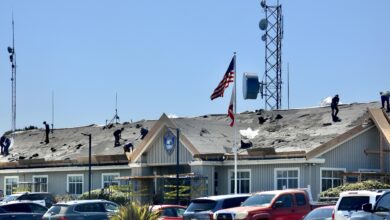Security for forest operations
Last month”s murders created fear in local forests and renewed questions about landowner security just as $38 million is being spent to create sustainable wilderness logging in the north and south ends of the county.
What is the security strategy of these new style logging-restoration nonprofits?
“Jere Melo was our security man,” said Art Harwood, executive director of the Redwood Forest Foundation Inc (RFFI), which owns the 50,000-acre Usal Forest. He was referring to the fact that Campbell Timberland Management still manages those lands, with slain Campbell employee Melo having provided security for the company. Melo was greatly valued by many agencies and owners for his knowledge of sites where violators dump, squat or cause erosion. Campbell closed all its timberlands after the slaying, while law enforcement searched for the suspect.
Another nonprofit, The Conservation Fund, will own or have a hand in managing more than 100,000 acres of Mendocino County forests, if both deals are completed as expected over the next few weeks.
Chris Kelly, California Program Director of The Conservation Fund, said that nonprofit-owned lands along Big River and Salmon Creek were closed while the search for the gunman was under way.
Access to The Conversation Fund”s forests on the Garcia River was also restricted.
Whether the suspected killer was involved with illegal growing operations has been debated. When this account was being written, the killings appeared not to be directly related to the drug trade.
Kelly said trespass marijuana grows are a serious security issue for anyone involved in forest management today.
“It”s a terrible problem for all the landowners,” he said.
With law enforcement overwhelmed with the number of grows, The Conservation Fund recently sent a helicopter to spot trespass grows on the lands it owns.
“When we spot grows, we just stay out of that area until well after harvest,” Kelly said.
“We don”t try to go in and eradicate them, we leave that to law enforcement. Although we have gone in with them, we don”t go in ourselves,” Kelly said
The helicopter spotted a few less trespass grows than last year, Kelly said, but still more than a dozen spots the nonprofit will avoid as it goes about its logging and restoration efforts.
“We are effectively locked out of our own property for fear of running into armed marijuana growing operations,” Kelly said.
He hopes the attention forest security has gotten recently will create public willpower to make the wilderness safer.
“These are terrible events. If there can be any good legacy from this perhaps it can be to prompt some understanding?.and community wide coordination on how to deal with [trespass] grows and make the forests safer,” he said.




